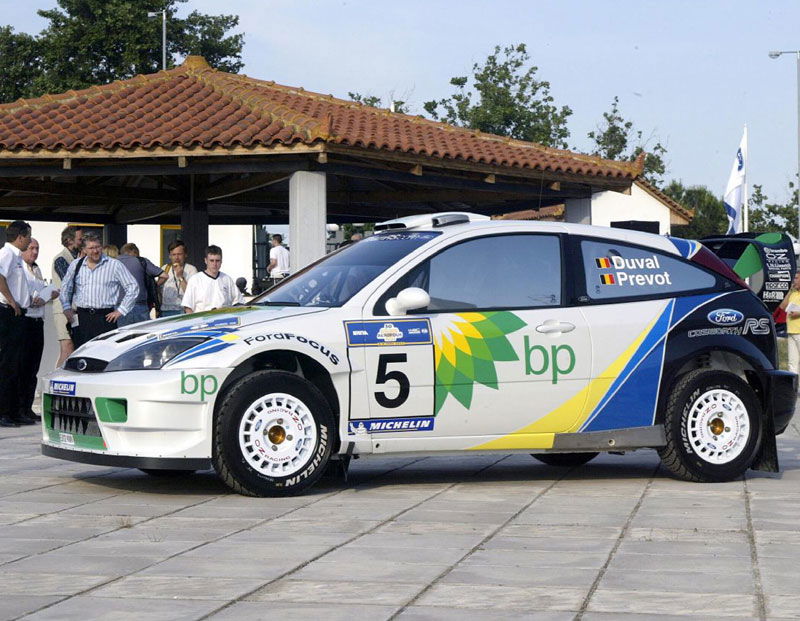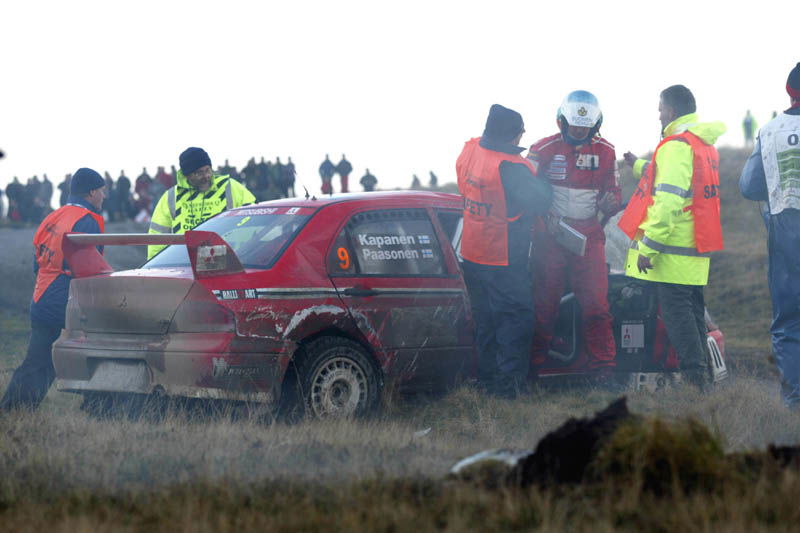Technical talk - Coping with the Acropolis.
The Acropolis Rally of Greece in renowned for its punishing stages and car-breaking nature.
However, it's also a massive physical challenge for drivers and co-drivers, who must endure up to 14 hours each day in their WRC car on perhaps the roughest and hottest event of the season.
555 SWRT's Human Performance Manager, Belinda Jellett, explains the measures taken to ensure drivers keep cool and alert in such extreme conditions...
The Acropolis Rally of Greece in renowned for its punishing stages and car-breaking nature.
However, it's also a massive physical challenge for drivers and co-drivers, who must endure up to 14 hours each day in their WRC car on perhaps the roughest and hottest event of the season.
555 SWRT's Human Performance Manager, Belinda Jellett, explains the measures taken to ensure drivers keep cool and alert in such extreme conditions...
- For safety reasons, drivers are required to wear fire-proof 3 layer nomex overalls in the cars, which on events like Greece can exaggerate the high ambient temperatures.
- In light of this, the 555 Subaru World Rally Team's consultant sports scientist, Tony Lycholat is attending the event. Using small pill-shaped transmitter thermometers, which can be easily swallowed by the drivers and co-drivers, Tony can accurately monitor their core body temperature throughout the event and take remedial action if necessary.
- The team has devised a number of cooling strategies to help keep the drivers and co-drivers core temperatures at acceptable levels. The Subarus in Greece have been fitted with fresh-air roof-scoops (otherwise absent this season), two additional cockpit-cooling vents, sun-reflective glass and white painted roofs. But every little helps and another method involves cooling race suits in the service area fridge before use!
- Tommi Makinen, Petter Solberg, Kaj Lindstrom and Phil[Mills have increased their water intake to ensure they are properly hydrated. It's usually recommended that a person should drink two litres of water a day, yet in Greece the drivers and co-drivers may drink up to 14 litres on each leg to avoid dehydration.
- The twisty Greek terrain can subject drivers to intense upper body strain, due to the strength that's needed to control the WRC car. The team's physiotherapist, Achim Hofstadter is on hand all day in the service area and at the drivers hotel in the evenings to provide deep tissue massage to keep their muscles supple.
- It takes ten days for the drivers and co-drivers to acclimatise physiologically for Greece, the 555 SWRT Human Performance team put together a programme to facilitate the transition for the drivers. This included a combination of exercise sessions in a hot, humid room (or sauna) and exercise / driving during the recce.

